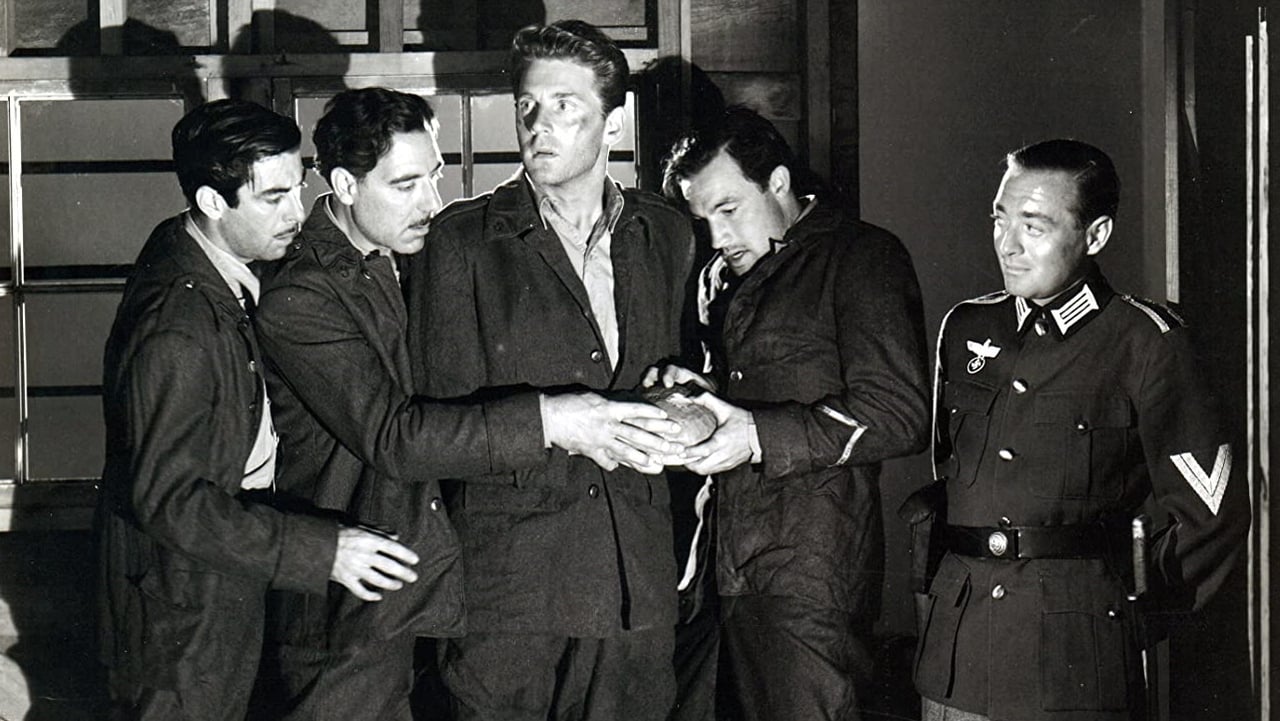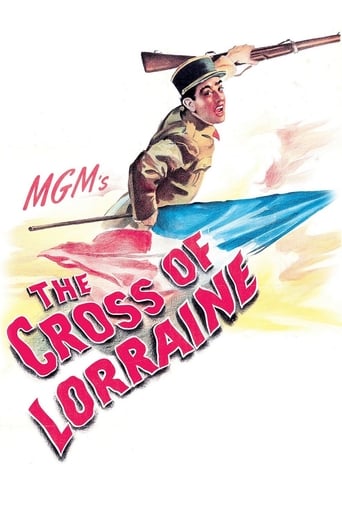

Lack of good storyline.
... View MoreGood , But It Is Overrated By Some
... View MoreOk... Let's be honest. It cannot be the best movie but is quite enjoyable. The movie has the potential to develop a great plot for future movies
... View Morewhat a terribly boring film. I'm sorry but this is absolutely not deserving of best picture and will be forgotten quickly. Entertaining and engaging cinema? No. Nothing performances with flat faces and mistaking silence for subtlety.
... View MoreThe film is hopelessly marred and scarred by its propaganda nature, which brands it with a character that debases it for history when the war once is over, which is a pity, for it's a great story with great actors, who all do their best, and there are some instances which are more realism than propaganda, especially towards the end, as the intrigue thickens, when prisoners start to escape. It's Jean-Pierre Aumont's film, he is the most interesting character, as you never really know where you have him, as he constantly has to change footing according to what is happening around him, while finally his character emerges in full glory. Gene Kelly is also quite good as an impossible slugger who is completely quashed by Peter Lorre and his Germans, but his annihilation is not quite complete. You can't keep down Gene Kelly for long.It's the boy in the end who introduces the cross of Lorraine and lifts the whole performance to a higher level. This is very far from one of the best war films, but it certainly has some good scenes worth seeing.
... View MoreA story of courage and defiance of the French people following their surrender to the Germans in 1940.French soldiers who surrendered are duped by the Germans and are instead taken to a prison of war camp where they are subjected to the most terrible conditions.Gene Kelly, in a non-singing role, is one such soldier. Punished for hitting German soldiers he is locked in solitary confinement.In his brief appearance as a priest, Cedric Hardwicke shines as a brave, defiant messenger of the Lord. He pays the ultimate price for attempting to conduct a religious service for someone shot trying to escape.There is also treachery and collaboration on the part of Hume Cronyn, a prisoner who because he could speak German was made an interpreter by the latter and apparently this went to his head. He also pays the ultimate price as in the ironic case of Peter Lorre, a German soldier caught up in an escape attempt and mistakenly killed by his fellow Nazis.The ending shows the determination and courage of a local village. This film is a tribute to such people.
... View MoreThis movie is an oracle of french Independence before it one year by the symbol of liberty (Charles Degaulle) in 1944 with American aim in the beginning of (Normandy operation) but he decided to make the liberty of Paris by french resistance without any aim from foreign countries to put the french trademark in the eternal pages of history by his speeches that he announced his invitation for french people (men , women , students) to take their arms for liberty and free France under his administration of pending government of (Free France) and the symbol of (Cross Lorraine) the saint cross of (Joan of Arc) the holy spirit of victory in 15th century against English occupation at France but he quoted this symbol by the spirit of 20th century and he did it for France and his famous shout after victory and during the vectorial ceremony (Vive La France).
... View MoreVery effective American propaganda piece made in the beginning of the war and centered around a couple of handfuls of French soldiers capitulating at Marshall Pétain's order and being made prisoners of war in the German part of Alsace. Director Tay Garnett was an acknowledged master of light and shadow, and not just in the cinematographic sense. Lots of issues are at stake here, and although all the characters are somewhat larger than life, the hesitant lawyer, wonderfully, luminously played by Jean-Pierre Aumont, and the cabdriver, acted by a young, doe-eyed Gene Kelly, both help to give human texture to the admittedly rather formulaic plotline, and neither is a hero in the textbook Hollywood sense. The most interesting conflict in the film would be how to deal with the Hume Cronyn character, a French soldier who sympathizes with the Nazis and serves as a translater / snitch in the POW camp. Should he be killed without a trial, or would that, even in wartime, be a violation of basic French principles of jurisprudence and democracy?'The Cross of Lorraine' is a very, very good film and a far cry from American WW2 movies we see today, they are all much more banal and onesided.The film was obviously inspired by Jean Renoir's ultimate antiwar movie, 'The Grand Illusion', and in its turn inspired Stuart Rosenberg's tough prison movie 'Cool Hand Luke'.
... View More